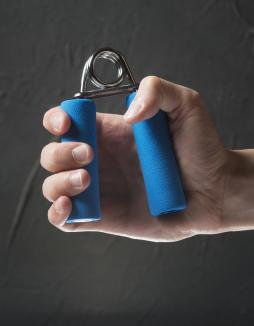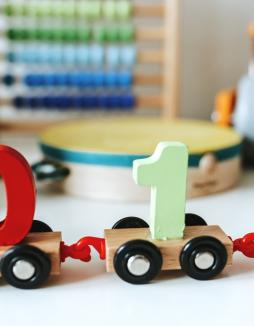Medical Equipment Care and Maintenance Tips
There is simply no getting around the way that medical tools are costly. Regardless of whether you figure out how to discover previously owned gear that is in acceptable condition and working enough to benefit your practice, you will most likely still shell out some batter for it. Along these lines, you need to ensure it keeps going as far as might be feasible.
Very much maintained medical equipment and diagnostic facilities are significant to both patients and medical services suppliers' security and wellbeing. This way, to give extensive patient care and guarantee each medical expert's prosperity, strict maintenance rules should be followed.
This expects you to practice appropriate care and maintenance, particularly for the gear you will, in general, utilize throughout every day. It would help if you worked appropriately with the goal that you can offer your patients the most excellent care. If it breaks, in addition to the fact that you are left attempting to sort out some way to treat patients on the fly, it does not make your practice look reliable.
There are different maintenance types; notwithstanding, maintenance of clinical gadgets fall under two kinds of care: Corrective maintenance and Preventive maintenance.
Preventive maintenance is a schedule that, when executed, lessens emergency fixes or all-out substitution. This kind of care sets aside your cash, and it gives you a more prominent return of investment after some time while it drops expenses down. Then again, corrective maintenance is utilized to recognize, segregate, and reestablish the gadgets' faults. This kind of maintenance is used to reestablish gadgets immediately before more critical breakdowns happen.
Indeed, even with legitimate maintenance and fix, you cannot generally control equipment failures; however, your smartest option to keep these pricy machines ready to rock 'n roll is consistent care. Here are a couple of maintenance and care tips to get you started.
1. Carry Out Routine Checks
One of the first and essential things to always do to ensure that your new device is working is often do routine checks. These checks are necessary to see potential issues before they become flaws. Doing continuous examinations on your gadget would guarantee to work effectively and at the right working limit. Large machinery ought to be examined when it is bought.
2. Train and Retain Staffs
This step is significant; training clinical staff on the best way to appropriately keep up their gadgets is exceptionally key. For example, a few devices are never dropped near metals or on the floor, while some are to be cleaned or sanitized and gotten back to their different cases/boxes after use. Untrained workers could cause a breakdown of a gadget if he/she doesn't have the foggiest idea of how to utilize it or misuses it.
3. Proper Usage and Treatment
Most of the time, gear failure happens because of improper use. If it is a piece of tool that everybody in the workplace approaches, at that point, ensure you give to provide on the best way to utilize it just for its planned purpose. Additionally, treat your equipment well and with care. It should not be hit, kicked, or in any case, slammed around—call client assistance instead. Clinical machinery should give precise data yet use it such that it is not suggested or treat it ineffectively, and you risk it breaking, which can compromise your patients' wellbeing.
4. Follow Manufacturer Guidelines
Maker not just gives guidelines identified with how to utilize gear appropriately, yet additionally how to maintain it. Regardless of whether you should run regular diagnostics and updates to firmware and software, or you're encouraged to enlist proficient professionals for routine maintenance and inspection, it's in every case best to follow manufacturer rules concerning care. This will provide you the best opportunity to guarantee legitimate capacity and life span, just as assist you with dodging conceivably exorbitant disasters should machinery fail.
5. Replace Lubricants, Reagents, and Other Consumables
As referenced before, all moving pieces of gear like wheelchairs should be greased up. This is genuine for clinical equipment that must be loaded up with reagents, greases, or other consumables regularly. Lubricants decrease the friction of moving parts, and reagents/other consumables are expected to deliver a precise result from some gear. Subsequently, these components are essential for the gadgets to work appropriately.
6. Keep Devices Clean
Clean climate can't be over accentuated in ensuring that your medical gadget keeps going as long as it ought to. Evade food, liquids, and combustible substance in your workspace, so they don't get in contact with your gadgets. Ensure that your medical devices are kept spotless and clean after use, ensure test holders are washed and dried appropriately, and utilized consumables are appropriately disposed of.
7. Understand Equipment Warranties
One of the main things to check when you purchase a new, previously purchased, or refurbished medical device is the guarantee and warranty. See what parts and services are covered. Remember that you are also likely needed to utilize, care for, and maintain the device appropriately if the warranty remains valid.
8. In-house Maintenance
There are specific repair and maintenance tasks for which your staff presumably isn't qualified. Notwithstanding, you may find that you, your office faculty, or in-house support services (if you're in an emergency hospital setting) can deal with a portion of the essential maintenance work.
This could not just permit you some proportion of quick reaction should the device endure problems, lessening downtime; however, it can likewise decrease the cost related to progressing gear maintenance costs. You must know about what you (or your care staff) are equipped for taking care of with the goal that you realize when it is essential to acquire professional help.
9. Hire Qualified Technicians
By accepting professional assistance, each device should be reviewed and kept up routinely by qualified professionals. There are a ton of alternatives for service contracts, you can contact AES International technicians.
10. Sterilize and Disinfect devices
A few gadgets have been said to have a bogus reading, and a major of this is because of messy on uncovered surfaces of the gadgets. Always ensure to clean or sanitize medical devices after use appropriately; this can forestall taking bogus readings or diagnosis and the spread of illnesses.












